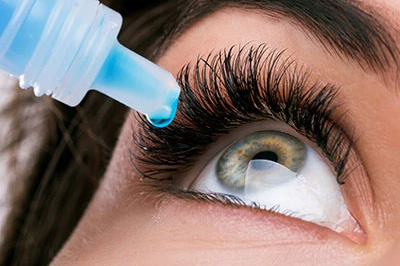Suffering from dry eye can be more than just mildly annoying. It is often a chronic condition that can result in significant discomfort and cause visual disturbances that interfere with your daily activities.
Symptoms of dry eye may include:
- Stinging, burning, or scratching sensation
- Gritty or sandy feeling, as if something is in the eye
- Stringy mucus in or around the eyes
- Blurred vision
- Sensitivity to light
- Difficulty wearing contact lenses
- Eye fatigue
- Intermittent excessive tearing
If you are experiencing persistent symptoms of dry eye, it is important to make an appointment for a comprehensive eye exam. During this visit, our eye doctor will check your symptoms, review your overall health history and discuss which medications you are taking that may be contributing to this condition. We will also examine your eyelids, evaluate your blink dynamics and inspect the cornea of your eyes. As part of this evaluation, we will look for any environmental factors that may be putting you at risk for dry eye. Diagnostic tests to measure the quantity and quality of your tears will be performed as needed.
The treatment for dry eye depends on the severity of the symptoms and the presence of any underlying conditions. However, in all cases, the overall objective remains the same. Treatment must restore a sufficient amount of tears to relieve eye discomfort, minimize dryness, and protect eye health.
While artificial tears and soothing ointments work well in many situations, more advanced or unresponsive cases often require other approaches to care. Additional treatment options can include anti-inflammatory eyedrops, medications to boost tear production or unblock oil glands, procedures to conserve tears and prevent them from draining away, specialty contact lenses and intense pulsed light therapy treatment.

